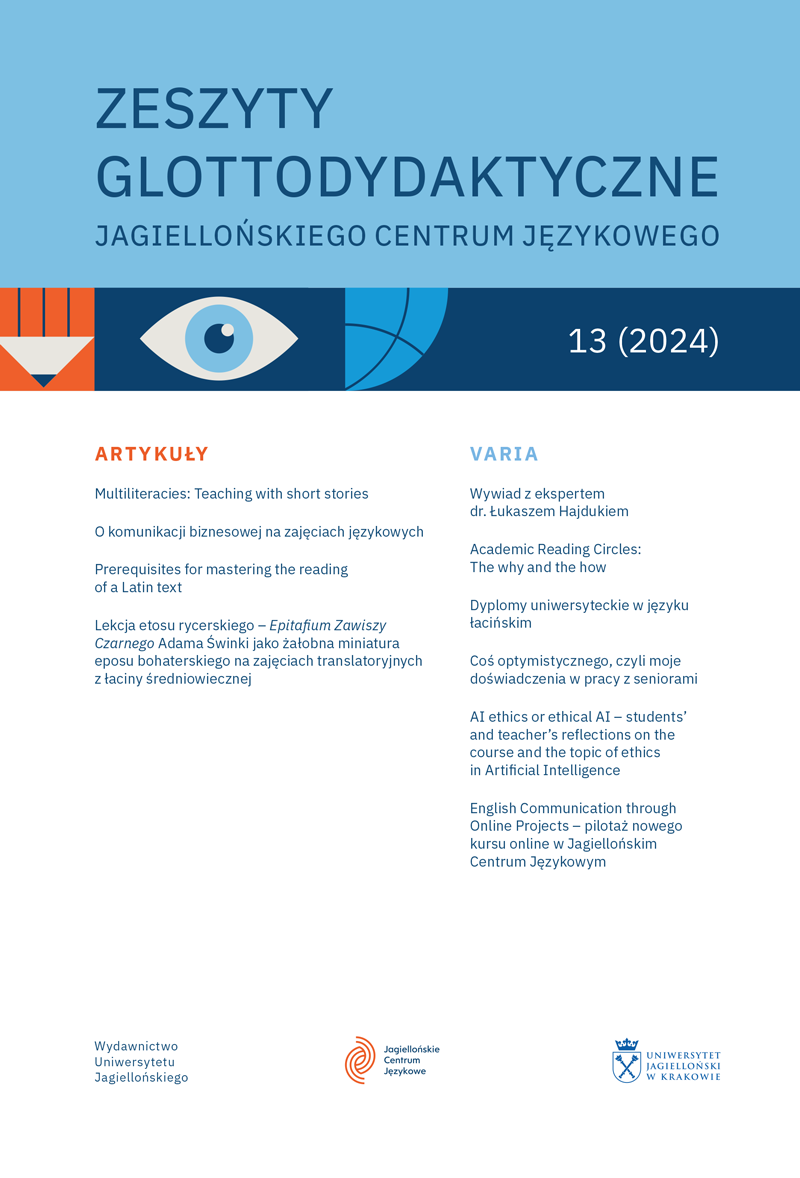
We kindly inform you that, as long as the subject affiliation of our 300.000+ articles is in progress, you might get unsufficient or no results on your third level or second level search. In this case, please broaden your search criteria.


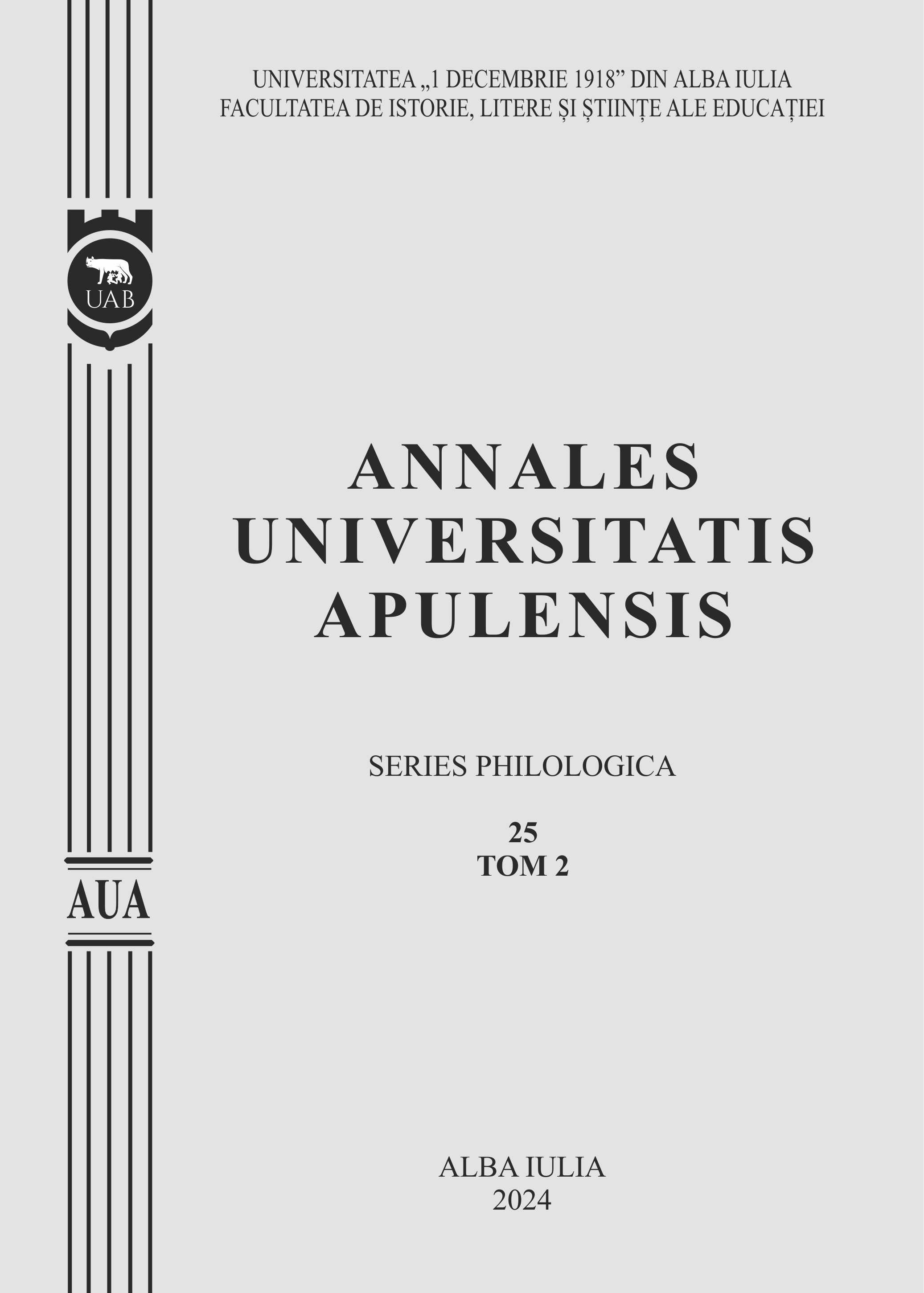
This archipelago of solitude has no other bond than shared pain. The 20th century was the century of all exiles, external and internal - declares essayist and theatre critic George Banu, urging for a profound exploration of the complexity of inner exile and fervent passion for theatre. Building upon the concept of inner exile, we analyze how it has influenced and enriched his vision of theatrical art. For Banu, exile is not merely a geographical separation, but an inner quest, a journey through the shadows of theatre in search of identity and profound liberation of the self.Examining his intellectual journey, we discover that Banu has traversed inner exile in a world of ideas and fragments of myth and life. Through his writings, he has transformed this experience into a fascinating journey through the darkness and light of theatre. Paradoxically, inner exile has led him to a profound connection with the theatrical universe, prompting him to seek and explore new dimensions of scenic art and the ceremony of performance.Another essential aspect of Banu's research is the interpretation and unification of various forms of theatre from multiple perspectives. From analyzing classical texts to exploring contemporary theatre, he has approached each performance with a mnemonic vocation. By examining the roles of the actor, director, and audience in the theatrical process, the critic reveals the fervor and complexity of interpretive art, gathering them in numerous written works.In his quest for the „mythical” spectacle of theatre, George Banu has undertaken a captivating journey through the world of stages, highlighting hidden aspects of the theatrical experience and the great theatre directors. Through his analyses, he reveals not only the beauty and significance of theatrical pieces, but also their power to connect and transform, summoning them to an imaginary assembly.
More...
Abstract: Faith and prayer played a defining role in the resistance of former political prisoners incarcerated in the communist prisons of Romania. Through this work, I aim to analyze their significance and present testimonies of those who experienced imprisonment in the Romanian concentration camps. Memory and remembrance are important themes in the memorial literature of the Romanian Gulag. Testimonies from those who endured the carceral experience imposed by the communist regime bring forth journals and memoirs that facilitate our imaginary journey to understand what prisoners went through in the communist dungeons. The purpose of this article is to highlight that prayer and faith played an extremely important role during the harsh years of detention experienced by confessors, martyrs and great spiritual leaders. It illustrates testimonies of inmates confessing how they practiced prayer while imprisoned and the outcome of their prayers. Being imprisoned provided inmates with a different perspective, a new dimension that positively changed their personality. Prayer had a significant role for those deprived of their liberty helping them gain an unprecedented inner freedom, defy the absurd norms of labor, cope with the difficulties of living conditions, and provide the opportunity for escape and spiritual strengthening, while also establishing genuine interpersonal relationships based on important moral values in order to resist the extreme conditions imposed by the Romanian communist regime.
More...
In this study, we will analyze how fantasy literature for children is methodologically exploited in the textbooks approved by the Ministry of Education for the fourth grade. We have chosen the fourth grade as a case study because the growing interest of children in the latter part of primary school in magical worlds and fantastical creatures is psychologically motivated. Thefourth grade is particularly the temporal interval in which students finalize their linguistic acquisitions, so the complexity of fantasy literature is no longer an impediment in the processof comprehending the particularities of a narrative text. We will also analyze the preferencesof manual and auxiliary authors regarding the selection of texts from contemporary and traditional canonical literature. The analysis will focus on the didactic approaches to thesetexts.
More...
At the height of their development and popularization, the Odyssey and the Iliad were part of a rich tradition of oral epic poetry. And while the transmission of Homer’s epics was facilitated by a Panhellenic framework, these works themselves became catalysts for the consolidation and unification of Greek culture; they shaped a shared Greek identity and a common value system. Particularly significant in this regard is the episode from Book IX of the Odyssey, namely the scene of the Odysseus-Polyphemos encounter. The island of the Cyclopes, as I argue in this article, represents a structural inversion of a civilized and orderly human community; the image of Polyphemos embodies “wildness” and delineates (or redefines) the boundaries of discourse on civilization, culture, and community. This motif anticipates, thus, the debate on nomos (“law”) and physis (“nature”) that engaged the intellectual elite of Athens, known as the sophists, around the turn of the 5th and 4th centuries BCE.This article traces the reception of the Polyphemos motif within this sophistic discourse of that period. Euripides’ satyr play Cyclops, filled with allusions to the sophists who were keenly interested in the Homeric motif of the island of the one-eyed monsters, serves as the focal point for this analysis. Furthermore, I will show that Euripides uses the dramaturgical framework inspired by Homer’s epic to confront two worldviews: on the one hand, respect for tradition and values associated with ancient poetry (the attitude represented by Odysseus), and on the other, the rationalism, radicalism, and tradition-directed criticism that characterized Euripides’ contemporary political thinkers and philosophers (represented by Polyphemos).
More...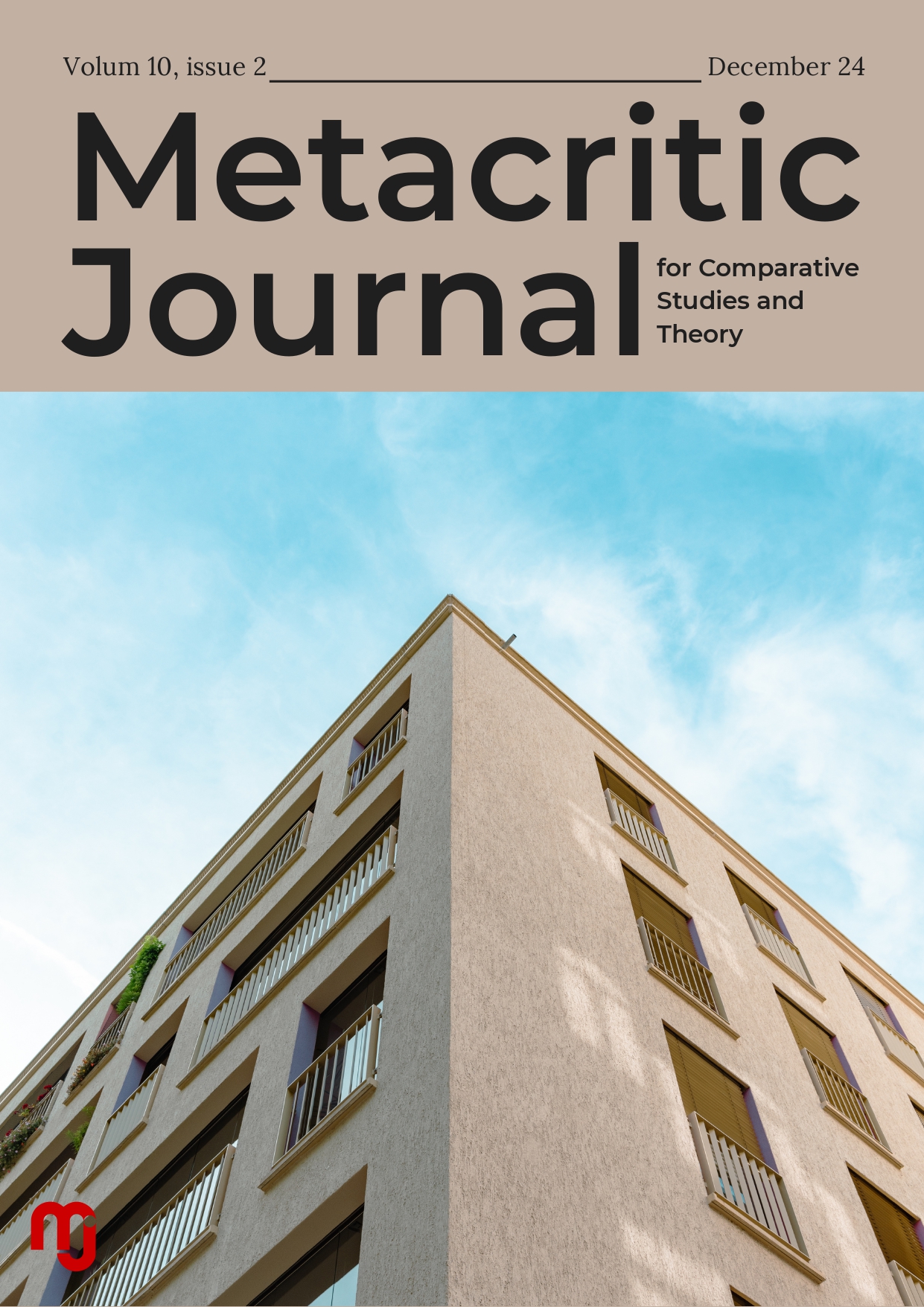
The nostalgic recollection of the past is central to contemporary cultural production, yet its intersection within Sinophone comics remains underexplored. This study addresses this gap by examining how recent graphic novels from Taiwan engage with the island’s cinematic past and focuses on their role in preserving the country’s collective memory and constructing national identity. By conducting an analysis of Back Street Dusk (Xiaoshi de Houjie Guangying, 2018) by Jason Chien (Jian Jiacheng, 1978–), through the lens of nostalgia studies, I contend that this graphic novel intertwines a nostalgic gaze on the island’s cinema, particularly the Hokkien film industry (1950s–1970s), with Taiwan’s cultural and political history. By perusing how Chien’s work contextualizes and voices the challenges faced by this industry under Chiang Kai-shek’s nationalist rule, this research highlights the role of graphic novels as both archives and tools for identity formation, while positioning their authors as not merely artists, but also keepers of cultural memory.
More...
This article examines the intersection of literature and photography, focusing on their ability to capture everyday life. It explores the evolution of photography in 1930s and 1940s Czech culture, a period marked by aesthetic debates about its legitimacy as art. By analysing the works of Miroslav Hák and Jiří Kolář, the article highlights a paradigm shift from traditional “great art” to an appreciation of the mundane. The fascination with the banal, which was transformed into art through various, most often surrealist, methods, had already manifested itself in Czech culture. Still, it was not until the establishment of Art Group 42 that the every day and the mundane were used to express existentialist reflections. Hák and Kolář introduced into Czech culture a new type of sensibility for reality in that they did not hide reality or dull its edges through lyricism. For them, it was more important to recognise just what kind of world we live in. Thus, the stimulus for their poetic creations was not necessarily artistic in nature, but ontological: Who are we, where do we live, and how are we supposed to grasp and understand these facts?
More...![W obronie infanta Edwarda – druki z kolekcji portugalskiej Biblioteki Narodowej [Biblioteca Nacional de Portugal] i wybrane aspekty ramy literacko-wydawniczej](/api/image/getissuecoverimage?id=picture_2024_85583.jpg)
This paper focuses on one important aspect of the Post(-Restoration) period (1640–1668) in Portugal, i.e. the defense of D. Duarte of Portugal (1605–1649), brother of the Portuguese king, John IV. As the Restoration War set two kingdoms – Spain and Portugal against each other – D. Duarte was kept prisoner in the Castello Sforzesco in Milan. The paper examines a literary aspect of D. Duarte’s story. It is based on a corpus retrieved from the National Library of Portugal that contains 19 texts published between 1641 and 1652, in different languages, and representative of different literary genres. Following Gustavo Kelly de Almeida (2011), who analysed a similar corpus at the National Library of Brasil [Biblioteca Nacional do Brasil], and Vanda Anastácio’s (2007) insights, the paper shows how the prints uphold the fight to liberate D. Duarte of Portugal. To make it clear, the paper offers a paratextual study of selected prints. At the same time the paper studies the importance of fixed formulas and topoi versus political utility and individualised elements.
More...
The article presents the first translation into Polish of an anonymous medieval poem entitled Deidamia Achilli. It belongs to the rich tradition of continuation and imitation of Ovid’s Heroides. The dependencies of the medieval text on Ovid’s elegies (especially Her. III) are shown, as well as its connections with Statius’ Achilleis.
More...
D. Kubok’s monograph entitled Krytycyzm, sceptycyzm i zetetycyzm we wczesnej filozofii greckiej (Criticism, Skepticism and Zeteticism in Early Greek Philosophy) addresses the issue of critical themes in early Greek thought. The work aims not to discuss skeptical antecedents but to find critical attitudes and motives in Greek literature (from Homer to the Sophists) using the author’s understanding and typology of criticism, skepticism and zeteticism.
More...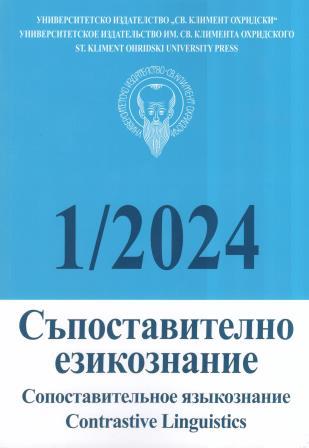
The article presents a comparative perspective on emerging pragmatic uses of the Bulgarian feminatives дама, госпожа, жена and their Norwegian counterparts dame, frue, kvinne. These new uses manifest in the neutralisation of differential semes such as ‘married’, ‘of high social status’, ‘respectable’; in functional and semantic specialisation; as well as in the development of some pejorative uses. The article outlines the reasons for the new pragmatic uses and the conditions under which they become prominent in speech. Additionally, it examines the use of distal and proximal demonstratives as criteria for establishing pejorative pragmatic uses, and in their pronominal use, as translation equivalents of the feminatives. Microsemantic changes lead to a redistribution of feminatives at the macrosemantic level, whereby Bulgarian дама, госпожа, and Norwegian dame expand their usage, displacing жена and kvinne.
More...
The article presents the meaning and forms of the conclusive in modern Bulgarian as one of the four evidentials together with the indicative, renarrative and dubitative. In works published in Bulgarian and in Serbian by the same author, translation equivalents of the Bulgarian conclusive in the Serbian language are sought. The main hypothesis is that the Bulgarian conclusive will be rendered in Serbian mostly via lexical means as indicators of inference and the perfect, which has taken over the functions of the past tenses. In the article, patterns of usage of the Bulgarian conclusive are extracted with and their translation equivalents in the Serbian language are analysed, on the basis of which generalizations are made and conclusions are drawn.
More...
The main objective of this article is a comparative linguistic analysis of the Bulgarian preposition for and its Modern Greek equivalent – the preposition για. The analyses of the uses and the functions of the two prepositions from a contrastive perspective are made in view of their syntactic realization in word combinations and in the structure of sentences and their word-forming function in speech. As a result of the observations, similarities and differences in their respective realizations in use are derived empirically. The choice of these two prepositions as the focus of analysis is determined both by their high frequency in the written and spoken language production in the two Balkan languages, which differ in their morphological nature – the synthetic Modern Greek (with a pronounced tendency towards analyticity) and the more analytical Bulgarian language, and by the diversity of relations expressed by them.
More...
Natalia Długosz, Andreana Eftimova. Syndrom postkowidiwy w języku. Polsko-bułgarskie stadium przypadku. Raport z badañ eksperimentalnych. Poznañ: Wydawnictwo naukowe UAM, 2023. 140 s. / The monograph explores the new vocabulary in Polish and Bulgarian that emerged during the corona virus pandemic. Empirical data were extracted by means of an associative and a survey experiment from both Polish and Bulgarian students in the pandemic 2022. On the basis of linguistic analyses, cognitive definitions of lexical meanings were formulated. The data allowed for the reconstruction of linguistic-cultural pictures of the studies concepts as well.
More...
Владимир Поломац. Језик повеља и писама Српске деспотовине. Крагујевац: ФИЛУМ, 2016. 496 с. / Vladimir Polomac’s book The language of charters and letters of the Serbian Despotate presents the first comprehensive study of the peculiarities of the administrative-business style of the Serbian language from the time of the Serbian despotism. The monograph analyzes the graphic, orthographic and linguistic (phonetic, phonological, morphological, lexical-stylistic, syntactic-stylistic) characteristics of the documents.
More...
Владимир Поломац. Српски као дипломатски језик у XV и XVI веку: филолошки приступ. Крагујевац: ФИЛУМ, 2023. 279 с. / Vladimir Polomac’s book Serbian as a diplomatic language in the 15th and 16th centuries: a philological approach presents the only comprehensive philological study of the Serbian language in its use in diplomatic correspondence in the Balkans during the period under review. The author presents a close reading of the considered documents and then analyzes their graphics, orthography and linguistic features at the phonetic, morphological, lexical and syntactic level.
More...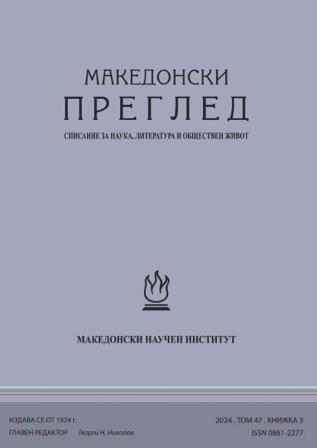
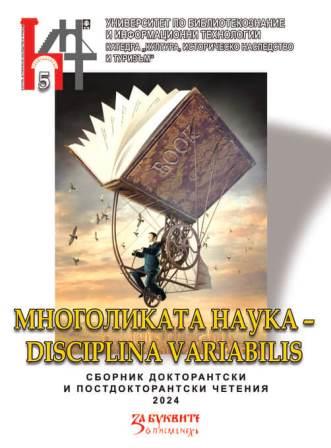
The theme of the proposed short essay "Martin Luther's Contribution to Cultural History" is an attempt for a broader view of the reformer's activities. In addition to being a Protestant theologian, Martin Luther was a translator, a poet, and a composer of church hymns, which did not go unnoticed by his contemporaries, the artists Lucas Cranach the Elder and Lucas Cranach the Younger. The author's goal is to outline some perspectives of Martin Luther's activity, to pay attention to the historical context in which it occurred, to mention the main reasons that contributed to its course, and to briefly show how Luther's personality is reflected in the works of Cranach father and son. The essential part of the work in the study is based on the interpretation of materials from various fields of scientific knowledge related to Martin Luther and his work, yet in view of the specifics of the discussed issues, emphasis is placed on the theological aspect of the message. Knowledge from other humanities is also present, which, according to the author, could illustrate an idea of the real scale of the work carried out by the Protestant theologian.
More...
The paper focuses on a late New Bulgarian damascene, which is kept in a book repository outside Bulgaria. The codex is known in scholarship as the Berlin Damascene (Berl. Slav. Fol. 36) and is part of a large collection of manuscripts and old printed books from the former Royal Library in Berlin. Today this manuscript with an interesting historiographical fate is in the possession of the Jagiellonian Library in Kraków (Poland). The Berlin Damascene is mentioned regularly, if only fleetingly, in publications on the Damascene theme, but for many years the main source material remained the inventory of B. Tsonev (1937). So far, the manuscript has not been the subject of a comprehensive study. The opportunity to work with the manuscript de visu has allowed us to make some general preliminary observations on the paleographical features of the Berlin Damascene and also to indicate tasks and prospects for future research to be undertaken.
More...